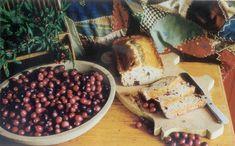
New research has found cranberries may offer defence against food poisoning, thanks to the fruit’s ability to inhibit the growth of harmful bacteria.
Researchers found adding natural cranberry concentrate to raw minced beef significantly reduced the growth of common food-borne pathogens, including salmonella, listeria and E. coli.
As well as offering potential for cranberry producers, the research may be a significant development for the meat industry, which is constantly searching for natural preservatives to replace chemical additives. Meat manufacturers may be able to add natural cranberry concentrate to raw meat to reduce the risk of it harbouring harmful bacteria, thus lengthening shelf-life, avoiding waste and removing E-numbers from product labels.
In the trials, ground beef samples inoculated with four pathogens were treated with cranberry concentrate or sterile water (control) and kept at 21ºC or 7ºC. Pathogens and total viable bacteria were enumerated on days 1, 3, 5 and 7. Results showed that compared to the control, cranberry concentrate significantly inhibited food-borne pathogens in ground beef at both 7ºC and 21ºC.
Dr Vivian Chi Hua Wu of the University of Maine, who carried out the study, said: “The drive to discover and develop safe, effective and natural antimicrobial agents is ever increasing. With numerous health benefits, cranberry’s antimicrobial effect offers considerable promise as a natural and effective tool to control food-borne pathogens and reduce the incidence of food-borne illness.”
Arun Hiranandani, senior marketing manager at Ocean Spray ITG, added: “This is the latest in a steady stream of evidence to emphasise the outstanding health benefits of the North American cranberry. As we strive to learn more and more about this extraordinary berry, we begin to realise the full scale of its potency.”
Cranberries are well known for their unique anti-adhesion capabilities, which are responsible for protecting the urinary tract, stomach and mouth from harmful bacteria. The anti-adhesion effect is primarily due to the unique structure of the proanthocyanidins (PACs) present in cranberries.
These compounds also deliver antioxidant activity, which helps to promote good heart health and flushes out harmful free-radicals.
The researchers said the evidence to support the benefit of cranberries in reducing the risk of food poisoning strenghtens the fruit’s extensive range of nutraceutical effects.



